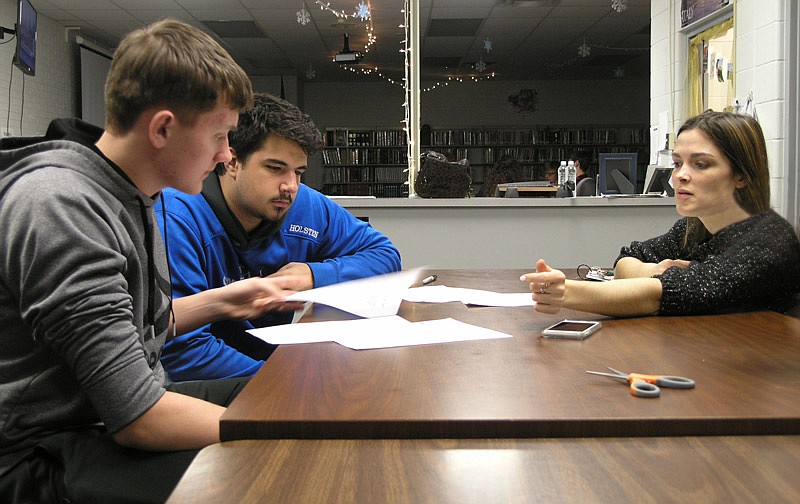In 2016, after Donald Trump was elected as the 45th U.S. president, Nicolette Gendron said she found herself concerned with media coverage from the New York Times specifically, stories on rural communities she'd rarely seen covered before.
"I saw how the organization was covering the election and covering certain parts of the county after the fact instead of having done it before, and a lot was coming out about media literacy and media deserts," Gendron said. "I thought people reporting on 'they don't read the news' or 'they're not educated' was a lazy way to think about it."
Leaving her position with the national newspaper, she found a fellowship with the Donald W. Reynolds Journalism Institute in Columbia. She was determined to discover the so-called "media deserts" hundreds of miles away from her.
In August 2018, Gendron began a project with Mid-Missouri schools - Russellville, Prairie Home, Boonville, Community and South Callaway.
She said she initially established the Midwest as her target area and assumed schools closer to the University of Missouri-Columbia, popularly known for its journalism school, would be more familiar with journalism.
She found she was wrong.
"Only one or two had a really substantial student newspaper," Gendron said.
Boonville High School has The Pirate Press, but the four other high schools do not have student newspapers.
"There isn't consistent coverage because local papers are limited and regional media is more focused on urban centers of the towns where these high schools are," Gendron said.
Gendron said her objective was to work with rural schools and allow the youth to tell stories from their communities.
After initial meetings with school officials, 15 students from the five area schools worked with her to produce either a photo essay, an investigative story or a profile story about his or her community that affected his or her high school.
Students learned about pitching stories, how to interview, creating outlines, submitting records requests and more. She said she wanted to collaborate with students and embed them with the news and media.
Partly a contest with University of Missouri-Columbia instructors as judges, the winner will receive a MacBook Pro and two runner-ups will receive an iPad Air. Winners will be notified in early March.
Each student will have his or her story published in a local newspaper, as well as the university's Columbia Missourian.
Russellville junior Dakota Holsten wrote about the death of a fellow student and close friend.
"She was in a car accident, and I really couldn't think of anything that hit our community harder," Holsten said.
Elizabeth Eidson died in a motor vehicle accident in Moniteau County in 2017.
"I felt like it needed to be talked about better because other news outlets said, 'There was this student, they were in an accident and that's that,'" Holsten said. "They didn't want to talk about it anymore, and I just thought that she needed more coverage."
Although he had never considered journalism before, Holsten said he is currently contacting colleges for visits.
Other students' topics included teen depression in America, a small-business owner in Prairie Home, the life of an author in Mokane and more.
Amy Simons, associate professor at Missouri School of Journalism, is one of three judges. She said working on the project was fun and students seemed to be interested in getting their stories right.
"I'm going to look for stories that are told in a way that's compelling as a reader, so that, even if I'm not familiar with the town or the people, I'm still very interested in the story," Simons said. "I want to get that sense that if I were to come visit them in their town, I would know and understand the issue."
She said media deserts are an issue in this area that grows deeper almost every day.
"Everybody likes to see themselves reflected in the media that they consume," Simons said. "If there isn't anyone telling your local stories or the stories of the people who make your community what it is, you're not seeing yourself reflected."
After working with Gendron, Simons said, the next step would be to look into resources available to give more students this experience. She added it could be local universities' role to expand that knowledge to the community.

